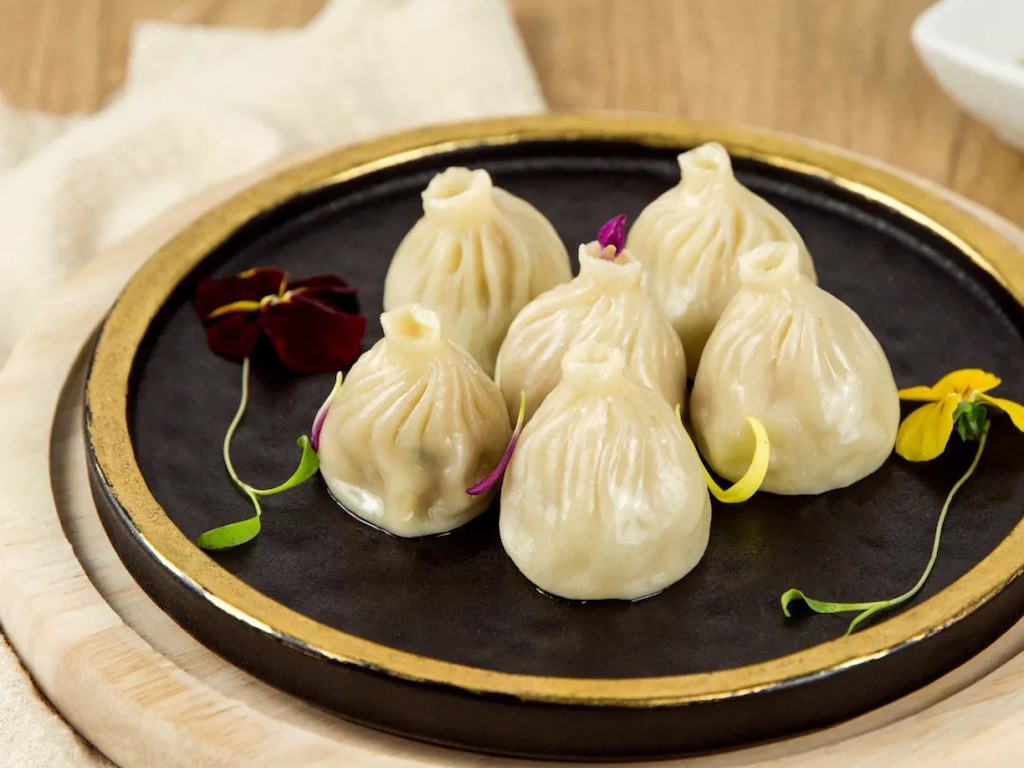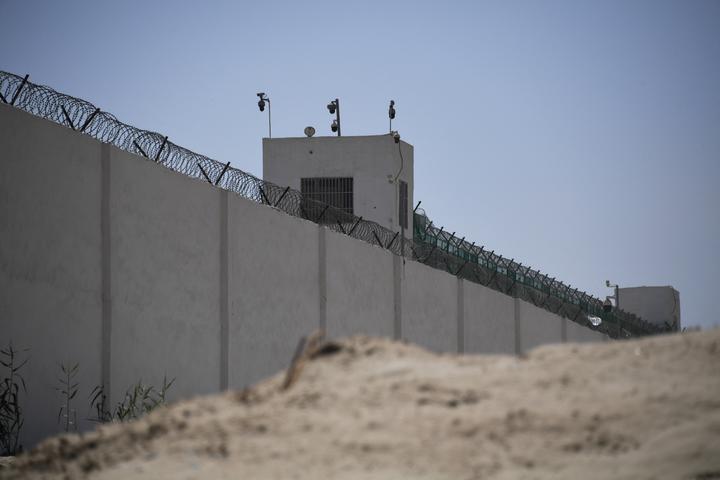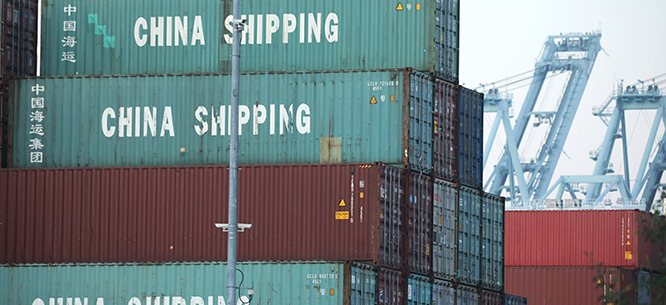The world facing desperate situations of climate change, planetary degradation and nuclear war preparation desperately needs protection from inhumane deceiving war promoting Western media, and from where shall it come if not from the bountiful and powerful two great designated adversaries of the Western powers, China, the world’s most populous nation and largest economy, and the Russian Federation encompassing 11% of the planet’s landmass.
Seems That the World Has Let Americans Get Away With Murderous Genocide in So Many Countries
Let’s begin with acknowledging that officials of the United States of America, its military, its clandestine operating CIA, and personnel within its criminal media cartel have been committing crimes against humanity free of any worry or concern of prosecution.
Let us also acknowledge that though there is relatively free speech throughout most of the world, no one seems to ever be talking about the multitude of legally prosecutable monstrous crimes against humanity committed by Americans with impunity, many of which involve the death of millions of innocent men, women and children. There is a strange absence of much talk about them even as the horrific acts of genocide that they were.
The World Court of Public Opinion Is Not Yet in Session Regarding US Crimes Against Humanity
Sure, there are quite a few anti-imperialist books in print that are critical of US genocides, but the great court of world pubic opinion has not been in session since 1945 when there was consensus among people throughout the world for demanding the ultimate legal punishment of the leaders of the nations for the murderous horrors perpetrated during their invasions and bombings in the course of the Second World War.
American Officials are Vulnerable for Having Confessed or Bragged about Their Illegal, Unconstitutional and Genocidal Crimes
How is it that even government officials of nations presently under attack by the United States of America, and those of nations invaded and bombed by the US in the past, passively continue to allow Americans to get away with murder, the present murdering of thousands and the past mass murder of many millions, when massively murderous crimes against humanity have even been openly admitted to by high officials of the government of the United States of America by their openly characterizing them either as having been mistakes or by bragging about their having been successful.
– American officials claiming that their mega genocidal invasions, bombings and occupation wars in Vietnam and Iraq were honest mistakes are the two most devastating examples. “We were wrong, terribly wrong. We owe it to future generations to explain why.” –former Secretary of Defense Robert McNamara. “It was a mistake, and I acknowledge that.” — Presidential candidate Joe Biden referring to his vote in favor of the Iraq invasion war when he was chairman of the powerful US Senate Foreign Relations Committee. But no talk of Americans paying for their years of ‘mistakes,’ murder and maiming of millions and the destruction of their countries.
– The CIA official in charge of the the US/UK covertly engineered bloody overthrow of Iranian democracy in 1953 has even written a book bragging about his crime, which the CIA has publicly admitted to.
– American murderous invasions of Cuba, Dominican Republic, Panama, Grenada and covertly arranging and financing devastating civil wars in Guatemala and El Salvador that are openly acknowledged (without any sense of responsibility for the suffering).
– The undercover arrangements for the brutal assassination of democratically elected popular first Congo President Patrice Lumumba were entertainingly reviewed in a televised segment of the US government’s Smithsonian Institute Channel in US mainstream media, no contrition indicated.
No Uproar in Reaction to Americans Massive Murdering of Millions of Innocent Men, Women and Children in Their Own Beloved Countries far away from the Invading United States of America
Martin Luther King’s & Nelson Mandela’s Exceptional Outcries
Oh, from time to time there have been accusing outcries from individuals: “The greatest purveyor of violence in the world is my own government,” Rev. Martin Luther King Jr. in 1967 made headlines in newspapers throughout the world, and South African President Nelson Mandela in 2003, “If there is a country that has committed unspeakable atrocities it is the United States of America,” Of course, CIA controlled criminal mainstream media vilified King, didn’t report Mandela’s outcry, and has made sure that few people ever heard of King’s condemnation of his government again. However, neither King nor Mandela called for prosecution of the perpetrators and compensation for victims of the atrocities they decried. (King did say that Americans ‘must make what reparations they can for the damage they did and provide the medical aid that is badly needed, making it available in the US if necessary, but said nothing about prosecution of Americans.)
In Western alternate media, the finest independent journalists, top intellectuals and historians stick to reporting and chronicling events of human horror as if they were imperial RealPolitik, as unchallengeable as the weather, rarely including the whole truth that they are obviously prosecutable as crimes against humanity, crimes against peace and genocide. Inversely, in the case of domestic homicide on a city street anywhere in the world, the public clamors to know whether or not what happened was a crime or not. Amazingly, in world coverage independent journalism this writer finds the word ‘crime’ is never or hardly ever employed. Journalists report mass murderous world events as terrible or mistaken foreign policy, rarely, if ever, citing a need for reparations, indemnity, or compensation for surviving victims.
Sadly, when an Iraq mom, managed to get her lawsuit against President Bush and members of his administration as far as a US Federal Court of Appeals, it received only a very modest amount of coverage even in anti-imperialist independent alternate media.
There’s Freedom of Speech but No One is Speaking Out
Why is there is no outcry around the world against the dozens of US invasions, bombings, occupation wars and deadly sanctions in and on smaller nations? The US bloodletting is probably rarely even much of a topic of pubic conversation anywhere except within the populations of the countries under US attack. Independent peoples historians assume that it is because of the enormous influence of monopolized CIA overseen giant worldwide media conglomerates.
For decades, powerful CIA controlled Western news and entertainment media, with it’s television’s worldwide satellite reach has mesmerized and totally bamboozled its planetary audience into ineptitude with its programing of indulgence, of very restricted and twisted selective news, deceitfully blacked out critical information, misinformation, and often outright lies ultimately portraying the many US regime change invasions, bombings, sanctions and occupation wars as benevolent and necessary to protecting American freedom and democracy.
Way back in 1950, Albert Einstein explained “Under existing conditions, private capitalists inevitably control, directly or indirectly, the main sources of information (press, radio, education). It is thus extremely difficult, and indeed in most cases quite impossible, for the individual citizen to come to objective conclusions and to make intelligent use of his political rights.”
Albert Einstein wrote that in 1950, even before the CIA operation Mongoose had completed its control over everyone of any appreciable importance in American media and sources of information and in much of Western Europe and on the other continents, see the lengthy article: Worldwide Propaganda Network Built by the C.I.A. 12/26/1977, The New Times.,
Powerful Western Media Has Anesthetized Majority Humanity but Why Are Even those Nations under US Attack Relatively Silent Re US Crimes Against Humanity?
Unfortunately, some nations currently under American military attack have pro US war lord governments installed by American occupying forces as in the case of Afghanistan and Somalia, and the populations of many nations formerly invaded, bombed and sanctioned by Americans, like Vietnam, Laos, Cambodia want to put their enormous suffering behind them. Their governments seek to avoid confrontation with the USA, long become trading partners.
A majority of small countries in the world once attacked by Americans, British or French have governments either economically, politically and militarily controlled by the USA or by a Western colonial power, or if enjoying a degree of independence, fear criticizing the US would bring economic punishment and/or covertly arranged disturbances.
Iran, Venezuela, Cuba, Nicaragua, Syria, Yemen and North Korea For Years Under Mortal Attack From USA! China & Russia Targeted with Nuclear Missiles — All Have Independent Governments
This is all to say that humanity can only hope for calls for international law to come down on the past and present murderous lawlessness of the American empire from nations presently under attack which have independent governments free from US control, like China, Russia, Iran, Venezuela, Cuba, Nicaragua, Syria, Yemen and North Korea. However, up to now, the these nations have not taken advantage of the US wars confessed to as mistakes, which it seems could easily be profiled into world public awareness of USA guilt of genocide, at least in Vietnam and more recently in Iraq.
Likewise would the repeated quoting publicly of Martin Luther King’s blistering condemnations of his government damage the credibility of Western media, which has for more than a half-century blacked-out Kings damnation of his government. These glaringly obvious ways to fight back against the insanely criminal USA that is attacking their nations and constantly threatening world war are not being taken advantage of though many nations suffer US sanctions and worse.
Solidarity and Truthful Counter-Propaganda from Independent Nations Under US Attack Woefully Insufficient
The US was sued by Nicaragua in the World Court in 1984 for mining Nicaragua’s harbors and other hostile acts (Nicaragua v. United States). The Court ruled in Nicaragua’s favor and found the US in violation of customary international law. The court put the United States of America under obligation to make reparation to the Republic of Nicaragua for all injury caused to Nicaragua. The US ignored the ruling but apparently stopped the mining. The suit brought international attention to US being guilty of crimes against a tiny country and it considering itself above the law.
This conviction by the International Court of Justice should not have been allowed to be forgotten as well as the US mega genocides committed in Korea, Vietnam, Laos, Cambodia and Iraq, and all the other regime change murderous invasions, bombings and deadly sanctions of Latin American, Middle East and African nations.
An Absence of Law
No leader anywhere ever seems to call for prosecution of US invasions under the Nuremberg Principles of International Law. Even the very leaders of nations under illegal US NATO attack fail to even speak of laws broken during yearly UN General Assembly Debates
There has long been an atmosphere of appeasement in the UN General Assembly’s yearly General Debate. Delegate after delegate from Africa, Asia and Oceania seem to adhere to some ‘gentlemen’s agreement’ not to embarrass the great and powerful United States of America when describing the appalling conditions prevailing throughout the 3rd World.
How strange, mysterious, unexplainable, illogical, baffling and painful for millions grieving over past genocidal military action and the millions facing death or worse today, that since the inception of the United Nations, no delegate to the UN General Assembly, with one exception (to the best of this historian’s knowledge), has called for justice under the law, for any of the the tens of millions of survivors of past mega profitable crimes against peace, crimes against humanity and forms of genocide. The single exception this author could find was Muammar Gaddafi’s comprehensive UN General Assembly address calling for investigation of all wars and restitution for victims of US NATO UN crimes against humanity.
That one exception occurred during the UN General Debate in 2009, when Gaddafi, leader of the Revolution of the Socialist Peoples Libyan Arab Jamahiriya, spoke in the name of the African Union: “We are about to put the United Nations on trial; the old organization will be finished and a new one will emerge.” Gaddafi called for investigations into past wars of permanent members of the Security Council, the US, UK and France, to be followed by trials of those guilty of causing these wars and millions of deaths and suffering “that has surpassed that brought by the Nazis.”
Speaking before the UN General Assembly in 2009, Gaddafi, had called the Security Council a “Terror Council” for the sixty-five wars it has failed to prevent, even approving or participating in most of them. How prophetic for what would come Gaddafi’s way so soon. (See “Time to Expose Media Manufactured Uprising CIA Terrorists US-NATO Air Strikes on Wealthy Libya“)
By not using their veto power, two giant independent nations, Russia and revolutionary China, gave the colonial powers the 2011 No-Fly Zone resolution which US and NATO military used to destroy all Libya’s army and militias which had been successfully fighting a CIA created terrorist rebel army that was executing black Libyans.
China and Russia also voted for a resolution precipitously accusing Libya’s government leaders and armed groups of violently suppressing peaceful demonstrations.
However, the Prosecutor of International Criminal Court Fatou Bensouda, stated that Mr. Gaddafi is just one of several individuals in Libya whose alleged criminal acts could fall within the jurisdiction of the ICC which continues to monitor criminal actions of armed groups in the country. These armed groups represent a major threat to long-term peace and stability in Libya.” There never was a single documenting video or photo of a peaceful anti-government demonstration, let alone, one being fired upon. To the contrary, there was a near million wildly demonstrating in favor of Gaddafi and Libya’s Green Book socialism while NATO planes bombed never reported in the New York Times or elsewhere in the US or Europe.
The colonial powers had sufficient influence in both the Arab League and the African Union to have both organizations vote against Gaddafi, which in turn influenced China’s UN posture.
China, after indicating it was against military intervention, abstained instead of voting no on the UN Security Council resolution calling for war on the Libyan government with the fig lief of enforcing a no-fly zone to protect civilians — a war by white neocolonialist powers on their former African colony that had raised its Arab socialist living standard to be higher than nine European nations including Russia.
China lovers were instantly stumped into incomprehension, bewilderment, dismayed, the rug pulled out from underneath their feet. Their confidence lost that the fifth of Mankind with wisdom gained during five thousand years of practical living would protect the rest of us from the insanely barbaric, homicidal imperialism wrought by predatory capitalism that had once colonized the whole nonwhite world, including China. This confidence or hope was now destroyed with our witnessing China going along with a classic example of false flag violence fostering a civil war in the age old imperialist principle of divide and conquer.
Vladimir Putin was not president of Russia during the Libyan debacle, and this author later published “Russians Calling Medvedev a ‘Traitor’ for Not Vetoing UN NATO War on Libya in Larger Context” — the article’s larger theme is the willingness of humanity to accept White world profitable investments in genocide until world economic power shifts from Europeans and their descendant nations overseas to the six sevenths of humanity they plunder. Article portrays the immediate before and after of the preposterous destruction of Libya.
The White folks nations led by the US have been throwing up a solid anti-Russian and anti-Chinese barrage of accusations, but the two great designated adversaries of the West remain polite and defensive.
China is accused of cultural genocide in Xinjiang, US President Biden labels Russian President Putin “a killer,” while even the West’s obvious backing of horrific ISIS goes unmentioned by the Russians and Chinese. (See “An American Senator Writes of ISIS ‘Hellish Filth We’ve Recruited, Armed and Trained for 8 Years!’” “The Syrian War had ” much to do with clandestine actions of CIA, MI-6, Mossad, Turkish MIT, French DGSE, Saudi GID and others. It would never have occurred without American planning and execution (and criminal media complicity).
In ISIS IS US, a panel of cutting-edge researchers tell what ISIS really is, and what has been going on behind the scenes in Iraq, Syria and Libya. The conclusion: Like Iran-Contra, the ISIS death squads were set up by the US to crush a nation.))
Chinese & Russian Diplomacy Quiet Re America’s Massive Genocide in Iraq, Libya, Syria, Yemen, Somalia and Afghanistan
About 2.4 million people have been killed as a result of the U.S. invasion of Iraq, while about 1.2 million have been killed in Afghanistan and Pakistan as a result of the U.S.-led war in Afghanistan. About 250,000 Libyans have been killed in the war, violence and chaos that the U.S. and its allies unleashed in Libya in February 2011. It is estimated that about 1.5 million people have been killed in Syria since the Islamic terrorists, ISIS and others were introduced into Syria. Estimates of people killed in Somalia since 2006 must be somewhere between 500,000 and 850,000. Estimates for Yemen are about 175,000 people killed, a minimum of 120,000 and a maximum of 240,000.
After 16 years of war, about 6 million violent deaths, and the killing continues as we read this.
After 21 years of war, 6 countries utterly destroyed and many other destabilized, and this reality carefully omitted from what qualifies as the evening news on telecasts in America, Europe and most of the TV watching world audience. Would that a compassionate supreme being looking down at planet Earth, would somehow see to this information being presented to Earthlings, that they might be motivated to put a end to such a inhuman catastrophe.
The world facing desperate situations of climate change, planetary degradation and nuclear war preparation desperately needs protection from inhumane deceiving war promoting Western media, and where shall it come if not from the bountiful and powerful two great designated adversaries of the Western powers, China, the world’s most populous nation and largest economy, and the Russian Federation encompassing 11% of the planet’s landmass.
Until now, seems that both Russia and China have confined themselves to presenting convincing domestic media and have spent only modest resources in reaching out internationally beyond cultural and scientific news coverage.
It bears mention that if China and Russia sought to seriously expand their international news coverage to include some occasional overview of the mega massive loss of life in the millions brought about by the genocidal foreign policies of the United States of America and its allies since 1945, both could expect some somewhat similar charge of at least one genocidal policy each. China’s invasion of Vietnam in 1976, as the New York Times alleged that leader Deng Xiaoping stated as “to teach Vietnam a lesson” — a lesson that took the lives of 30,000 human beings. Over the span of years from 1991 through 2017, Russia first lost the Chechian war for independence, then reconquered Chechnya amid a terrific loss of life and deadly Islamic terror, and in 2008 fought a heavy handed war with Georgia over the independence of Abkhazia and South Ossetia from Georgia.
However, it is China and the Russian Federation that represent humanity’s hope and profound desire for a peaceful world of cooperation and non-belligerence. At present a wild insistence is being broadcast for war preparation with its seemingly unlimited financing constantly demanded in the media of the US-led Western neo-colonial capitalist democracies. The list of genocidal regime change wars, invasions, bombings and sanctions perpetrated by the US led Western powers since 1945 is inclusive of nearly a majority of the formerly militarily colonized peoples of the world and the deadly violence continues in more than a half dozen nations. This is what needs media attention for protection of those who will otherwise continue to suffer death, maiming and immeasurable suffering.
Though for the Chinese, confrontation, both in the martial arts, as in Kung-fu, and in social behavior and personal demeanor is a face and balance losing stance, Chinese cities are targeted with US nuclear warheads, and since either by accident, mistake or intention, a million-fold catastrophe could occur, it would seem some outspoken attention, some awareness, some warning for all humanity is in order. NATO has threateningly declared China a global security challenge.
Military and nuclear confrontation seems to be no problem for President Putin, however given the awesome challenge of climate change and planetary degradation being derailed by the mega enormous financial and human resources wasted on military spending, a facing off in a tough cold war posture does not seem a sufficient response to the continuing menace from the United States of America and her allies.
In this no win situation, may some Chinese philosophical wisdom be introduced in some fresh world media in time to prevent the third world war being so assiduously invested in, planned, prepared for and promoted, while the effects of climate change and Earth degradation slowly inundates humanity in a lethal future.
The post
China and Russia Quiet about US Past Genocides and Ongoing Genocide in the Middle East and Africa first appeared on
Dissident Voice.
This post was originally published on Dissident Voice.






